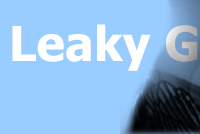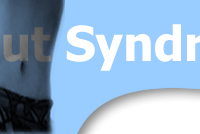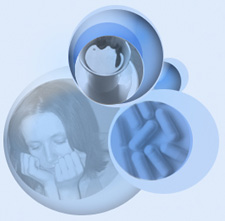 |
 |
 |
 |
|
 |
 |
 |
 |
|
||||||||||||||||||||||||||||||||||||||||||||||||||||||||

Day one There are seven small words that every journalist dreads. The words are invariably spoken by editors when you least expect them, and inevitably lead to pain or humiliation or worse. Nicola, who is in charge of this magazine, is something of a grandmaster of their delivery, which is ideally laced with both unshakeable conviction and cheerful innocence. Last Tuesday she phoned me at home, and, with barely any preamble, came right out with them. 'Tim! I've got this great idea for you!' I felt a shadow pass across my heart. The great idea in question was to eat nothing but burgers and chips and fried chicken and McMuffins and McNuggets, and to drink Coke and milkshakes and coffee for seven days and seven nights and to see how I felt at the end of it. 'I want you to go to all the fast food places you can think of and order everything on the menu,' Nicola said. The great idea behind this great idea is the movie Super Size Me about an American film-maker, Morgan Spurlock, who subsisted on a McDonald's diet for a month, and filmed his Odyssey from each McFlurry to Quarter pounder. 'He got really ill,' Nicola explained with unsuppressed glee. 'His liver almost packed up and everything. But you are only doing a week. You'll be fine!' I thought of my latest fleeting resolution of getting into something like shape before the summer. I thought of instead wading through vats of strawberry milkshake and scaling fatty mountains of burgers. I imagined a week sitting on my own in Burger King fretting about liver failure. 'Sounds great,' I said. Before I start, I have to visit a place called the Diagnostic Clinic, just off Harley Street, to get a kind of holistic check-up. The clinic uses conventional and alternative techniques to audit your general health. After blood tests, I sit and watch, with some nostalgic affection, my magnified red blood cells on a television monitor. The cells, which look satisfyingly plump and rotund, are disporting themselves in a sea of crystal clear plasma, and occasionally playfully colliding like Teletubbies in the sunshine. Little do they know, I think. A specialist in Chinese medicine then puts electrodes between my fingers and toes and touches each one with a small probe. The resultant electrical information is fed into a computer programme invented by a celebrated acupuncturist. Somewhat to my surprise, my energy - qi - is apparently high and flowing freely, my pulse is strong, my immune system is ready for anything, my stress levels are just about within normal limits, and my tongue is, by all accounts, a good pink colour. Having gone into the clinic with some trepidation, I walk out of it feeling like a man who has drunk deep from the fountain of life. Then I start my week as I mean to go on: with a Big Mac meal and large chocolate shake. The nearest McDonald's to Harley Street is more stylish than most. It has retro Sixties sofas and cool low stools. On the instruction of the doctors at the clinic I haven't eaten since breakfast, so the Big Mac is welcome. The bun tastes sweet and pillowy. The fries are crisp. And better still, while I'm eating, all around me are pictures of impossibly green salads. This is part of McDonald's new drive into healthy eating and it makes me feel better. In his film Spurlock points out that even the McSalads have absurdly high salt and calorie contents, but still their presence in pictorial form on tables and windows seems to have a soothing effect on me while I dunk salty fries into thick ketchup. Heartened by this ambience and my recent clean bill of health, I order an apple pie and a large Coke. I wouldn't go as far as to say, 'I'm lovin' it', quite, but I'm findin' it not too bad. Evening Big Mac meal with chocolate shake, Apple pie, Coke. Day two Whereas Spurlock stuck exclusively to McDonald's we have decided to be slightly more eclectic. So I have a choice for breakfast of Burger King, McDonald's or KFC (or Wendy's or Wimpy if I can find one). I decide to start the morning with a pilgrimage to the first Burger King I ever went to, 17 years ago, at Piccadilly Circus, where I order from memory a sausage bacon and egg sandwich, large hash browns and a large coffee. I've noticed already how responses to my new diet seem to divide people along gender lines. Most of the men I've mentioned it to seem jealous, as if it is every real bloke's secret wish to eat as many sausage bacon and egg sandwiches and hash browns as possible. The women I've told tend to pull anguished faces and express fears for my complexion and internal chemistry. There have been times in my life, times when I had a slightly dodgier complexion and almost certainly more tortured internal chemistry, when I would have thought nothing of this week's work. When I first moved to London I had a job working on a magazine near Piccadilly Circus. We would tend to drop in to the pub over the road for a quick early evening pint after work and then, at 11.30 or so, I would find that the only place open to eat was the Burger King up the road. Lit by the dazzle of the Piccadilly lights and in the shadow of Eros, it had a slightly magical quality. Strangely, the following morning I would often find myself back in this same Burger King on the way to work, testing my belief that a sausage bacon and egg sandwich and the rest were a potent hangover cure. I therefore bite into my hash browns this morning in the hope of a Proustian moment, a fleeting instant where I will be transported back to my 21-year-old hungover self and feel the full hope and excitement of the ensuing years waiting to unfurl. In the event, I am just left with an odd sensation of the hash brown sticking to the roof of my mouth. Which is not how I remember it at all. Breakfast Sausage bacon and egg sandwich, large hash browns, large coffee Lunch cheeseburger, Coke, fries Evening Big Mac, vanilla shake Day three Part of Nicola's Great Idea is for me to approach my fellow diners and to find out how often they eat burgers, what their habits are. The impetus behind the current wave of litigation against McDonald's in America is the allegation that the high sugar, high fat, high salt, high caffeine diet is profoundly addictive, and that the fast food companies knowingly induce their customers into that addiction from the earliest age. Last year a class action was taken to court by a lawyer called Samuel Hirsch who was also instrumental in fighting Big Tobacco. Hirsch argued that McDonald's promotions, particularly those targeted at toddlers and children were misleading and, in effect, malicious. 'In the Bible there is an injunction against putting a stumbling block in front of a blind person,' he said. 'That's exactly what McDonald's does to the children of America.' Hirsch lost the first round of his battle with the corporation, but - with one in three American children now projected to develop diabetes in later life - he is not about to go away. With some of this in mind, in Finsbury Park McDonald's, I sidle up to four builders in hard hats and fluorescent jackets and find myself asking them, slightly too coyly, if they come here often. I am met with defensive stares. 'Often as we want,' one says, eventually. And: 'Why? Are you doing a school project?' I mention Observer Food Monthly, but it does not appear to cut much ice. They come here, they say, because it is cheap and it's quick and they are working up the road. They come here every day for a Big Mac, or a quarter pounder with cheese but they work it all off in the afternoon. They like the coffee (they like the coffee?). And no they don't think McDonald's is addictive: some days they go to Burger King. And no, they have never ordered a salad. Later, I get talking to a young harassed looking woman, with a double child's buggy, sucking a milkshake through a straw. She comes here, she suggests, pretty much because the kids scream if she doesn't. One of them loves the nuggets and the other one mainly just likes the toys. She usually just has a packet of fries, or a coffee, or she finishes off a Happy Meal. I think about telling her that a District Court Judge in the United States in Hirsch's case memorably described Chicken McNuggets as 'a McFrankenstein creation of various elements never utilised by the home cook'. But then I don't want to spoil her day. She comes here three or four times a week, maybe, she says. 'It's cheap and it fills them up and it's somewhere to go, I suppose.' I imagine that anyone who regularly visits fast food outlets has a stock of associations to draw on, the best of times and the worst of times, a kind of brand memory. Looking back, I remember making a fairly conscious decision to stop going to McDonald's, except in dire emergency - or on key journalistic assignments - when driving once in the New Mexico desert. On a long straight road, with the high sierras in the distance, the Drive-Thrus with their neon signs were the only way of judging that you were actually moving forwards. I stopped in several, a sweating Englishman in a hire car, and entered Big People land. I was driving along this road to get to the home of the conceptual artist Bruce Nauman, who I was due to interview. Nauman spent much of his early career working with neon signs, satirising the landscape of the disposable culture that he saw around him. When I got to his ranch, he talked a little about some of his favourites. He rather liked one, he said, which flashed up in big letters the word EAT, an imperative which you see all along the highway to his house. In Nauman's version however, the neon skipped a beat, before adding a single letter at the beginning and end: DEATH. In some ways, I seem to have taken that as a sign. Breakfast Sausage and egg Mcmuffin, coffee Lunch Chicken McNuggets, Coke Dinner Whopper meal, coffee Day four In his film Morgan Spurlock makes a big deal of getting through day three, which is about the point when your body realises that its new diet is here to stay and it had better adopt some crisis management and get used to the idea. I wake up on day four thinking last night's Whopper with cheese was almost certainly a mistake. I have hot sweats and an odd sense that someone is wringing out their washing in my stomach. I immediately put this down to the food, though I note, too, that the carefully selected control group for my ad hoc experiment is also looking a bit under the weather. My four-year-old daughter has woken up with a face the colour of turned milk, and her baby sister seems intent on spending most of the morning concentrating very hard on the intricacies of peristalsis. Maybe it is something in the water. Maybe they are imbibing my junk food by osmosis. I take a bus to the Burger King on Islington High Street, but the motion of the bus does not help and the by-now familiar smell of Whoppers cooking adds to the problem. At the counter, my nerve fails completely and I order a bottle of water and a salad. I can't help feeling that I see a hint of a smile pass across the face of the girl who is serving me, as if she has won a bet. When I sit down with my greens I realise that every table in the place has just a single occupant. One of the cleverest things about McDonald's and Burger King is that you feel it is fine to eat alone in them. You might look a bit sad, but you are in good company. Today though, there seems something vaguely agricultural about watching people here lined up, chewing burgers. The food chain suddenly begins to resemble a loop. I decide, in somewhat cowardly fashion to just drink water for the rest of the day in order to make it through the rest of the week. That night, hungry suddenly, and hot, I find it hard to sleep. One of the things I think about lying awake is a section of Don DeLillo's novel Underworld in which the protagonist travels eastwards deep into the Soviet Union during the cold war and as he does so finds that his guts get increasingly strangled and his bowel movements increasingly explosive. I get up to find the passage. I return to bed thinking I am about at Prague. Lunch Water, chicken salad Day five I am driving up the M1 and, with just a double breakfast egg McMuffin and a vanilla shake inside me, I'm thinking about lunch. After yesterday's virtual fast, my stomach seems to have developed a quarter pounder-with-cheese-shaped hole. The more I eat, I'm explaining to my wife, Lisa, in the car, the hungrier I get. 'It's like that thing: the more a man has the more a man wants.' Right, she says (secretly believing that I am enjoying this). Near Northampton I slip off the motorway and collect a couple of sacks of McFood. One of the added extras of a Drive-Thru is, of course, that the car quickly begins to smell like the restaurant from which the food came. Perhaps intoxicated by the blood tang and fat fragrance of the burgers, and certainly mesmerised by all the red and yellow cardboard that has invaded the back seat my one-year-old daughter decides this is the moment volubly to exercise her right to a Happy Meal. I give her a single chip, but predictably it only serves to heighten her desire. I'm reminded of the recent government obesity report that included anecdotal evidence of a family who had asked for a Big Mac and fries to be liquidised so they could feed it to their baby. I offer another chip and have a strong sense of being on a slippery slope. She now has her hands outstretched towards a cheeseburger wrapper and is insistently saying 'muh, muh, muh'. My elder daughter nibbles at her Chicken McNuggets, and declares with some conviction that she likes these fish fingers. Of all the salutory observations and gruesome facts in Eric Schlosser's book Fast Food Nation, the small section that has stayed with me is a page or two about a memo leaked from the McDonald's commercial department. In the memo marketing executives explained what they wanted to get out of a major ad campaign involving Disney free gifts. The memo identified the psychology that the company most needed to reinforce in its customers: 'parents take their children to McDonald's because they want the kids to love them'. Purchasing something from Disney, the memo went on, was 'the ultimate way to make kids happy, but it was too expensive to do every day'. The ad line therefore would read: 'Only McDonald's makes it easy to get a bit of Disney magic'. The real message that McDonald's wanted to convey, however, was that taking your children to McDonald's was 'an easy way to feel like a good parent'. This is a very seductive idea, of course. As any parent quickly becomes aware, if a child is demanding a Happy Meal, you are forced into the position of acquiescing or offering an alternative that does not come with its own trademarked upbeat adjective: an unhappy meal, therefore. Morgan Spurlock offers some good parenting advice in this respect. In his film he shows a class of schoolchildren pictures of Abraham Lincoln, Jesus, and Ronald McDonald and asks if they can identify them. No one gets the first two, though one child believes that Jesus is a dead ringer for George W. Bush, but of course everyone knows who the clown is. He then asks himself the question: how do you resist this recognition and the brand loyalty it engenders? He comes up with a proactive strategy: every single time he passes a fast food place, he will clip his kids around the ear, from a very young age, to counteract any positive stereotyping. In the Drive-Thru car park, however, I fear the battle is already lost. I turn round to see my elder daughter examining from all angles her free Happy Disney gift, a fairy princess which purportedly doubles as a spinning top, while unconsciously feeding chips into her mouth. The baby, meanwhile, remains restless for 'muh'. Later, after a supper of McChicken sandwich, I try to make the pink princess spin, but she seems dully incapable of motion. Instead she falls to one side, top heavy, and rests, listing, on the table. I am beginning to know the feeling. Breakfast Egg McMuffin, vanilla shake Lunch Quarter pounder with cheese, fries Coke Dinner McChicken sandwich, coffee Day six Only one day to go and I am feeling bullish, presumably, given the amount of ground beef that is now abroad in my system, literally so. Lisa seems convinced that my diet is making me more than usually short-tempered and irritable, and prone to irrational mood swings. One moment I can just about see her point, the next I feel it is the most absurd and small-minded observation I have ever heard. Given that it is nearly all over, on the way to work, insanely, I decide to purchase a Colonel's Feast for breakfast at KFC. Before this week I had never been in a KFC. Even when drunk and hungry enough to buy battered saveloys from caravans parked outside train stations there has always, it seems, been a small instinctive part of me that has been able to resist an establishment that markets the virtues of food served in buckets. This morning, though, I order the large chicken feast, and large fries, and a jumbo black coffee and settle down for breakfast. Jeffrey Steingarten, the celebrated food critic of American Vogue, has styled himself as The Man Who Ate Everything. In a recent issue of the magazine he went in search of the perfect southern fried chicken. His quest took him from Mississippi to Houston to New Orleans to Memphis. He analysed secret ingredients, purchased state of the art fat fryers and weighed the precise merits of different flours and batters. He ended up with a recipe requiring a 13-inch cast iron skillet, a plump free-range chicken and soft self-raising Southern flour, 'which makes for a fluffier shaggier more nicely textured, thicker yet lighter coating, shot through with airy bubbles frozen in the time-space continuum by the miracle of frying'. By the end of his culinary voyage Steingarten felt he was able to make the finest distinctions between the virtues of any and every fried drumstick. Moreover, he believed he had located the linguistic nuance that separates 'crispy' from 'crunchy'. I have an inkling that the chief chicken fryer in my KFC had never aspired to that degree of precision. Not overly concerned with either crispy or crunchy he had found a Third Way. The batter of the chicken in front of me existed in a middle ground between fatty and greasy. It clung half-heartedly to the chicken and, when scraped off, revealed meat of a purplish kind of hue that seemed to invite post mortem more than digestion. The next time Jeffrey Steingarten is over in England, I resolve to invite him here for breakfast, if only so he would have to change the title of his book: The Man Who Ate Everything (Except the Colonel's Feast at the KFC on Farringdon Road at Nine O'clock in the Morning). By lunchtime there is an odd feeling in my lower gut not far removed, I imagine, fancifully, from labour pains. The unlikely antidote that my body seems to be requesting, however, is a large vanilla milkshake and a Big Mac meal. Surprisingly this combination proves effective against the stomach ache, but in the afternoon, trying to research a story about Creationist schools, I find myself dropping asleep at my desk, drooling into my keyboard. Even more alarming, I am then barely able to keep my eyes open to watch the football from Portugal. I'm not sure if you can develop cravings in under a week, but at half time I do find that the thought of a large McDonald's Coke, stacked with ice, with condensation forming on the cardboard cup, perks me up no end. I drive out to track one down, and have a cheeseburger for good measure. And then I get an early night. All this eating is a tiring business. Breakfast Large Colonel's Feast, large fries, coffee Lunch Big Mac meal, vanilla shake Dinner Cheeseburger, Coke Day seven I wake up feeling worse than I did when I went to sleep. On recent visits to America, I have been surprised to see, sitting in hotels how many people order Coke with their breakfast. This morning, though, I can begin to see the point of it. It seems to clear my head, gets rid of some of the tiredness behind the eyes. I have a sense that I should go for a big breakfast, this being my last day, but my heart is not quite in it. I have a simple Big Mac, and find myself chewing it very slowly. Later I go along to the Diagnostic Clinic to repeat my tests, and begin to see how my body has responded to its new regime. The electrodes are attached to my fingers and toes again and a different acupuncturist feeds my electrical current into the computer. The read-out, this time shows 'a weakness in my large intestine and stomach energies'. My tongue has lost a little of its pinkness. My energy is down, but still in a normal range, my stress level is almost off the scale. I then go to watch my blood on the screen. I'm almost shocked to see how different the picture is. What once were perfect round red cells, now seem almost as likely to be tear-drop shaped. The clear plasma meanwhile looks clogged and dotted with things called basophils and neutrophils, amorphous greasy looking individuals, indicating 'the presence of pathogens and bacteria, undigested food particles, debris or organisms in the blood'. I leave the clinic and go and buy an apple and a bottle of water. I look back at some of the copious notes I have made while waiting for some of my tests. I find I have written only two things in my notebook. 'You are what you eat' and, underneath it, 'I feel like shite'. Breakfast Big Mac, Coke One week later One of the great things about Morgan Spurlock's film is the way the hard-bitten Manhattan doctors who are checking his progress start off quite laid back about the risks he faces and end up pleading with him to stop before he does himself further damage. In this respect Dr Sharma of the Diagnostic Clinic does not disappoint. When I return to get my blood results, despite some of the side effects I felt, I'm not really expecting any dramatic changes to show up from just one week on this diet, particularly as I effectively missed a day in the middle. I expect the results to be qualified, and to come with caveats and discrepancies. However, as Dr Sharma goes through a list of indicators he is happy to say that the changes are 'marked and unequivocal'. My total cholesterol count is up 10 per cent, while my 'good' HDL cholesterol is down 10 per cent. The number of antioxidants I am producing to counteract 'free radicals' in the blood has gone from the very lowest end of normal to the very highest end. Moreover, Dr Sharma says, my fat levels have risen significantly, my energy has diminished sharply, I am dehydrated and am showing iron and B group deficiencies. And worse, from the amount of large fat molecules in my blood I seem to have developed something called 'leaky gut syndrome'. This could be a result of gum disease, but given the dramatic change in my diet it is likely that it is down to that. As Dr Sharma stresses, none of this is properly scientific, 'but even so ... !' He prescribes two-a-day antioxidants, and B complex and a course of macrobiotic yoghurt, and suggests that The Observer pays. The following day I meet Morgan Spurlock in the Dorchester Hotel, where he is staying to promote his film. We sip at glasses of water and compare notes. He tells me how, though he finished his McDiet over a year ago he can still 'put on weight so quickly now. I feel good, my body has returned to normal, but if I overeat one or two days it gets turned into fat immediately. I got all these extra fat cells just hanging around waiting for something to do. ' I wonder if he has been able to go back into McDonald's and he admits that 'to this day if I smell a Big Mac, if one was on the table right here, my mouth would start watering like Pavlov's dog, instantly. It smells fantastic to me, but the minute I take a bite of it, it tastes chemical and processed and fake. It leaves this Mcfilm in my mouth, this Mcaftertaste. Only McDonald's can do that for me.' The corporation has not attempted to sue him, 'how could they - it's all fact!' rather they are putting out counter-intelligence. Spurlock says he has a nemesis these days, called a McDonald's Global Nutrition Expert, who follows him around television studios. While he is telling the story of his diet - how he developed severe chest pains on day 21, how he became virtually impotent by the end of the month, how he ended up with a liver like that of an alcoholic - she is explaining how educated their average customer is and how last year McDonald's sold 150 million salads. 'You think, like, holy shit, that's a lot of salads!' Spurlock says. 'But then you start to think. McDonald's feeds 46 million people a day, that's almost 17 billion meals served a year. So not even one in 100 people ever buys a salad, even by their own reckoning.' Spurlock is trying to get his film into every school in America, and he is writing a book that will concentrate on three of the main symptoms resulting from his diet, and their consequences when spread over a national scale: 'These three things are all the things that we medicate most heavily for. I got incredibly depressed, up and down, which I had never experienced before. We give people Prozac for that in massive quantities. I couldn't perform sexually at all - we prescribe Viagra for that. And I couldn't concentrate - we overdose on Ritalin for that. You just wonder what we could change if we started eating a bit better.' Spurlock looks forward to a world where fast food corporations are taxed and the revenue goes into healthy eating campaigns. 'You could have Justin Timberlake on MTV eating broccoli and going for a jog.' And he plans to make another movie, though it will not be Super Size Me 2. 'I think the people will have had enough of me by then stuffing my face,' he says. 'You gotta know when to stop.' I say I know exactly what he means. |
|||||||
 |
 |
 |
 |
|||||
 |
 |
|||||||
 |
 |
|||||||















